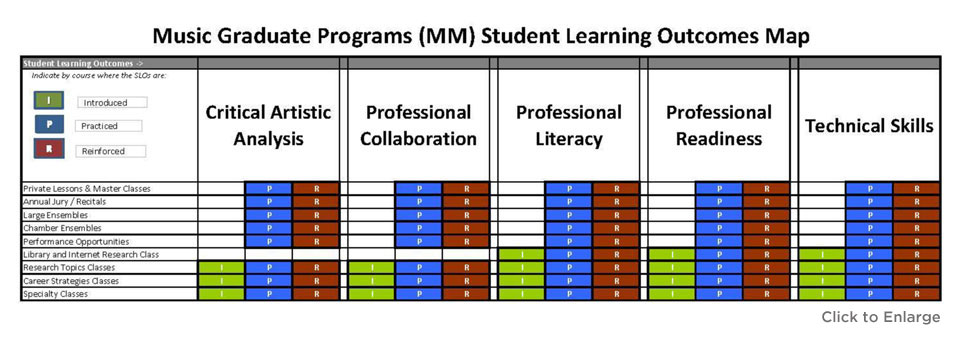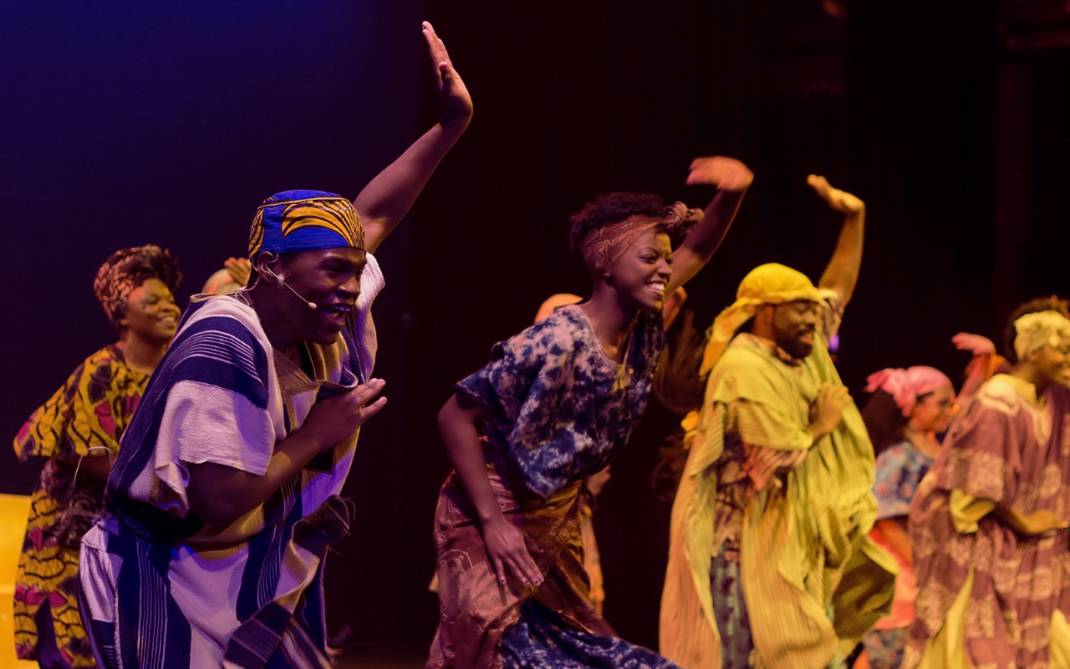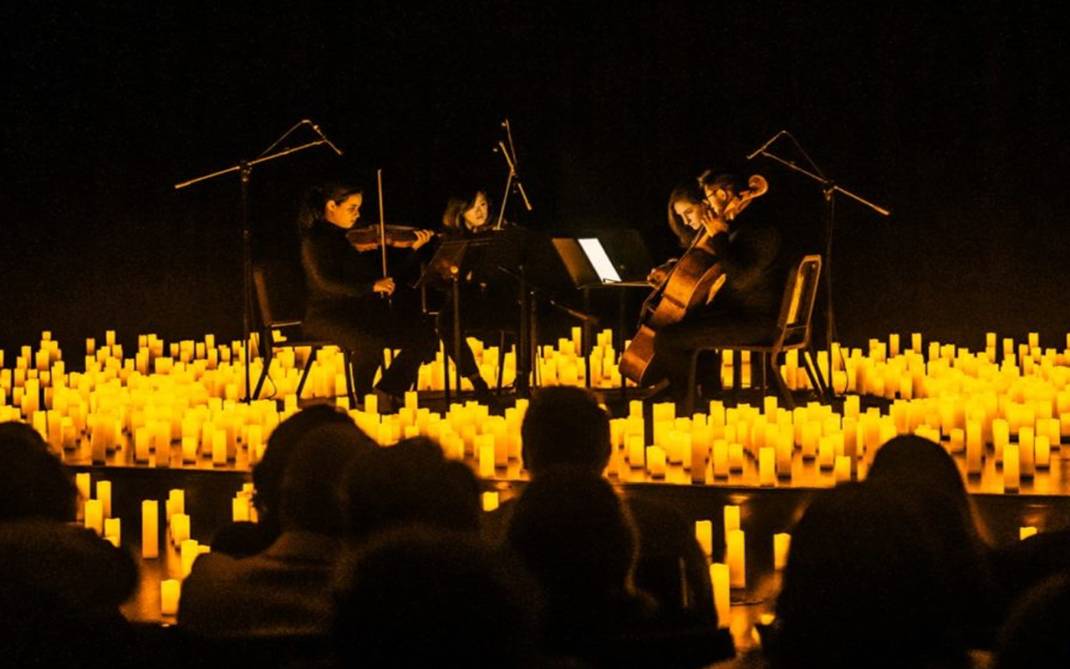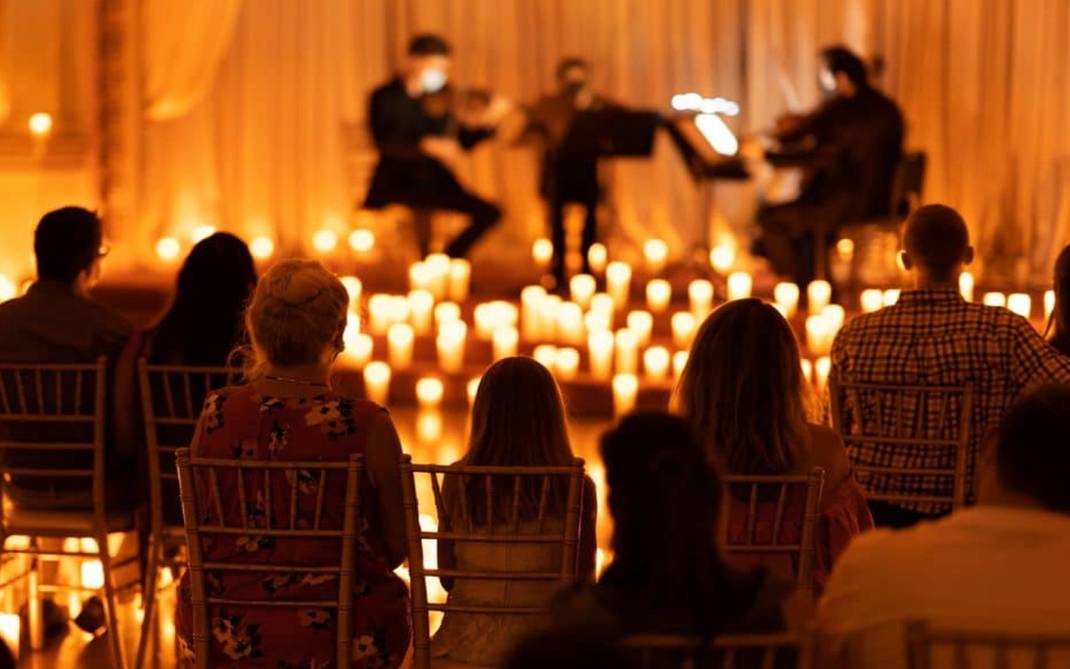Music MM Annual Report
Music MM Annual Report
The following Student Learning Objectives and assessment information is for Master of Music graduate programs in the School of Music. Concentrations are offered in the areas of Brass, Collaborative Piano, Composition, Guitar, Orchestral Conducting, Organ, Percussion, Piano, Strings, Voice and Woodwinds.
Program Mission
The School of Music’s stated mission and goals for the Master of Music degree program focuses specifically on student learning:
“The School of Music of the University of North Carolina School of the Arts prepares students for professional careers. Our goal is twofold: to enable students to attain their highest musical aspirations and to meet the challenge of succeeding in a highly competitive profession. ...
“In its conservatory setting, UNCSA provides an artistic environment in which each student pursues personal musical development. But the School of Music is also a professional training ground in which the student actively and realistically prepares for the practical aspects of making a living as a musician.
“The Graduate Program represents the School of Music at its highest level of artistry and education. The two-year Master of Music degree’s goals and objectives are to prepare and train students for careers as professional classical musicians....” (from the UNCSA 2015-2016 Graduate Bulletin, p. 73)
In addition, the School of Music’s stated program mission and goals clearly stem from the mission of UNCSA and align directly with the Mission Statement of UNCSA:
“The University of North Carolina School of the Arts provides gifted emerging artists with the experience, knowledge, and skills needed to excel in their disciplines and in their lives, and it serves and enriches the cultural and economic prosperity of the people of North Carolina and the nation. UNCSA is the state's unique professional school for the performing ... arts, training students ... for professional careers in the arts.” (from the UNCSA 2015-2016 Graduate Bulletin, p. 10)
Student Learning Objectives (SLOs)
SLO 1. Critical Artistic Analysis
- Perform or compose music at a level of artistry qualifying for professional employment
- Comprehend and evaluate multiple points of view about performance or composition techniques and musical expression at a level consistent with graduate study
Assessment Plans and Activities
Direct Assessment
Performances and/or Final Projects
- Annual Juries/Recitals
First-of-Year Hearing (for certain concentrations), Fall Jury, and Spring Jury or Recital Hearing and Recital - Public Large Ensemble Concerts
- Public Chamber Ensemble Concerts
One-on-One Instruction/Small Group Work
- Weekly private lessons
- Weekly master classes
Indirect Assessment
- Data from the 2016 School of Music Graduate Questionnaire
- Acceptance to doctoral programs/Professional work obtained
SLO 2. Professional Collaboration
- Learn to function as a leader and collaborator in a work team such as a performing ensemble
Assessment Plans and Activities
Direct Assessment
Performances and/or Final Projects
- Annual Juries/Recitals
First-of-Year Hearing (for certain concentrations), Fall Jury, and Spring Jury or Recital Hearing and Recital - Public Large Ensemble Concerts
- Public Chamber Ensemble Concerts
Indirect Assessment
- Data from the 2016 School of Music Graduate Questionnaire
- Acceptance to doctoral programs/Professional work obtained
SLO 3. Professional Literacy
- Gain practical knowledge with music literature, especially as it pertains to principal area of study
- Understand and interpret music in a variety of styles, genres, mediums and historical eras at a professional level
- Learn to speak and write effectively about music from various style periods
Assessment Plans and Activities
Direct Assessment
Performances and/or Final Projects
- Annual Juries/Recitals
First-of-Year Hearing (for certain concentrations), Fall Jury, and Spring Jury or Recital Hearing and Recital - Public Large Ensemble Concerts
- Public Chamber Ensemble Concerts
One-on-One Instruction/Small Group Work
- Weekly private lessons
- Weekly master classes
Indirect Assessment
- Data from the 2016 School of Music Graduate Questionnaire
- Donor and ad hoc events for the School of Music in which a written and spoken component are required
SLO 4. Professional Readiness
- Achieve awareness of advanced practical information and realities of careers in music
- Demonstrate the ability to prepare, audition and interview for professional employment
- Demonstrate the ability to prepare, audition and interview for a post-graduate or doctoral program of study
- Demonstrate knowledge of the grant writing process and the importance of developing entrepreneurial skills
- Demonstrate knowledge of arts-in-education and other community outreach venues
- Demonstrate the ability to advocate for music to various populations
- Develop advanced skills for using music technology
- Demonstrate advanced writing skills as they apply to career development
Assessment Plans and Activities
Direct Assessment
- Annual Juries/Recitals
First-of-Year Hearing (for certain concentrations), Fall Jury, and Spring Jury or Recital Hearing and Recital - Projects and other work products accomplished in Career Strategies classes
Indirect Assessment
- Data from the 2016 School of Music Graduate Questionnaire
- Evidence from current and former students in the areas of professional employment, fellowships, scholarships to attend summer festivals and other evidence including freelance professional work while in school
SLO 5. Technical Skills
- Perform or compose music at a level of technique sufficient for professional employment
Assessment Plans and Activities
Direct Assessment
Performances and/or Final Projects
- Annual Juries/Recitals
First-of-Year Hearing (for certain concentrations), Fall Jury, and Spring Jury or Recital Hearing and Recital - Public Large Ensemble Concerts
- Public Chamber Ensemble Concerts
One-on-One Instruction/Small Group Work
- Weekly private lessons
- Weekly master classes
Indirect Assessment
- Data from the 2016 School of Music Graduate Questionnaire
- Acceptance to doctoral programs/Professional work obtained
Evidence of Student Learning
The following Music Graduate Programs (MM) Student Learning Outcomes Map documents the connections between each of the five Music SLOs and courses and/or activities within the Music curricula.

The direct assessment data is qualitative and exists in a variety of types, including
formats such as written jury and recital hearing comments, documented and recorded
performances (some reviewed by outside critics), and artifacts from student projects
and presentations. This qualitative data is valid and valuable within a conservatory
environment. Nonetheless, the School of Music will be seeking ways to supplement this
qualitative data with appropriate quantitative data, further enhancing our ability
to assess program effectiveness and to track longitudinal trends.
The indirect assessment data is quantitative and primarily derives from the annual School of Music Graduate Questionnaire administered toward the end of each academic year. As part of this questionnaire, using a 5-point scale (1=very poor/needs significant improvement, 5=very good/needs no improvement), students are asked to rate how well they feel the graduate curriculum is helping/has helped them grow and achieve success in each of the five Music SLOs.
In addition to the SLOs, through the questionnaire students are also asked to rate explicit components of the graduate curriculum. These curricular components are the same ones documented in the SLO map presented above. Even though the students assess courses and activities, not the actual SLOs, because of the background mapping with the SLOs the data provide a valuable, alternate framework and lens through which to view the program as a whole and to assess its overall health, including the status of the five SLOs. For example, if students were to express concern about the effectiveness of lessons, not only would the School of Music move to understand and address the concern about course effectiveness, but because all five SLOs are embedded in lesson work, the School of Music would also know to investigate more thoroughly possible negative impacts upon the SLOs.
The Five SLOs
SLO 1. Critical Artistic Analysis
Direct Assessment(s)
- All students successfully completed required juries or recitals.
- Numerous highly successful concerts were mounted throughout the year, encompassing a range of opportunities including orchestra, wind ensemble, jazz ensemble, opera, and chamber ensemble.
- The vast majority of students accomplished satisfactory work in their major area of study.
Indirect Assessment(s)
- Through the 2016 Graduate Questionnaire, students assessed a learning outcome of 4.6 out of 5.0.
Interpretation
With regard to the SLO Critical Artistic Analysis, the current 2015-2016 average score
of 4.6 compared to the previous year’s average of 4.1 points to a continued satisfactory
result in this student learning outcome.
The formation of the new Chrysalis Chamber Music Institute (CCMI) is an added artistic outlet for our students. The curriculum of the Institute combines courses in chamber ensemble performance, a seminar that includes guest artist lectures and masterclasses, and a culminating capstone project in the final semester that will incorporate entrepreneurial skills development. It is envisioned this two-year chamber music program will eventually lead to a credential (yet to be determined) as an addition to the primary MM degree.
In previous years’ assessments of this SLO, interest has been expressed regarding the inclusion of instruction in different performance practices (new music, world music, early music, improvised music, etc.). As we continue to pursue possibilities to provide such opportunities, the current year included the following:
- guest artists lecturing on baroque performance practice and score analysis (as part of the Chrysalis Chamber Music Institute Seminar);
- an entire chamber music concert dedicated to new music composed by our own composition students;
- the annual School of Music Orchestra performance of student composition premieres; and
- a Jazz Ensemble concert featuring the Latin bassa nova style that included a string section in addition to the typical Jazz Ensemble instrumentation.
The orchestra performed one of its concert programs in four successive venues, not only giving the opportunity for our students to perform the same repertoire multiple times but also providing the challenge of adjusting to vastly different settings and acoustics.
NOTE: Due to the transition in the Assistant Dean of Graduate Studies position, there was no School of Music Graduate Questionnaire administered in Spring 2014, thus eliminating the possibility of a 3- year longitudinal comparison in that data set. The questionnaire administered in Spring 2015 had twelve responses. Though less than desired, these numbers do provide a few instances of comparison between AY 2014-15 and AY 2015-16. Also to be noted is that the two aforementioned questionnaires were administered in such a way that the data from the MM and PAC students was aggregated.
SLO 2. Professional Collaboration
Direct Assessment(s)
- All students successfully completed required juries or recitals.
- Of particular note are the numerous and highly successful concerts that were presented throughout the year. These concerts encompassed a range of opportunities including orchestra, wind ensemble, jazz ensemble, opera, and chamber ensemble. Among the many performances, notable standouts include Orff’s Carmina Burana in which the UNCSA Symphony Orchestra collaborated with the UNCSA Cantata Singers and the Winston-Salem Symphony Chorale, Bach’s Magnificat in which the UNCSA Cantata Singers collaborated with the Magnolia Baroque Players, the four-concert Chrysalis Chamber Music Festival, and a four-concert tour of North Carolina mounted by the UNCSA Symphony Orchestra. In addition, the School of Music collaborated with other UNCSA schools in two A.J. Fletcher Opera Institute productions (Rota’s The Italian Straw Hat and Brook’s reworking of Carmen), in CP Taylor’s musical Good, and in the annual UNCSA production of Tchaikovsky’s ballet The Nutcracker.
Indirect Assessment(s)
- Through the 2016 Graduate Questionnaire, students assessed a learning outcome of 4.4 out of 5.0.
Interpretation
With regard to the SLO Professional Collaboration, the current 2015-2016 average score
of 4.4 compared to the previous year’s average of 4.1 points to a continued satisfactory
result in this student learning outcome.
It is believed by the administration that the Chrysalis Chamber Music Institute (CCMI) will draw exceptionally talented students, and because of that, will both broaden and deepen the instruction of chamber music as well as bolster the overall level of the student population. During this past year, several students were afforded the opportunity to work side-by-side with their faculty and guest chamber musicians through a partnership with Chamber Music Society – Lincoln Center in a four-concert Chamber Music Festival. In addition, two student chamber groups were sent to Lincoln Center to perform on its live-streamed masterclass series. And we have now seen the matriculation of a pre-formed ensemble enrolling in CCMI beginning fall 2016. The administration was also able to secure additional scholarship funding specifically for these CCMI students, and will continue to focus on sustained scholarship fundraising.
Graduate students continue to participate in the Nu ensemble, premiering new chamber works and performing chamber works written in the last few decades.
It is noted that the question on the Questionnaire directly related to Chamber Music decreased this year from 4.5 to 3.9. Reasons for this drop in student satisfaction will be investigated for future years; additionally, the longitudinal numbers will be surveyed.
NOTE: Due to the transition in the Assistant Dean of Graduate Studies position, there was no School of Music Graduate Questionnaire administered in Spring 2014, thus eliminating the possibility of a 3- year longitudinal comparison in that data set. The questionnaire administered in Spring 2015 had twelve responses. Though less than desired, these numbers do provide a few instances of comparison between AY 2014-15 and AY 2015-16. Also to be noted is that the two aforementioned questionnaires were administered in such a way that the data from the MM and PAC students was aggregated.
SLO 3. Professional Literacy
Direct Assessment(s)
- All students successfully completed required juries or recitals.
- The number of performances presented during the academic year, combined with the range of repertoire represented by those performances, attest positively to the level of professional literacy provided by the program.
- Numerous highly successful concerts were mounted throughout the year, encompassing a range of opportunities including orchestra, wind ensemble, jazz ensemble, opera, and chamber ensemble.
- The vast majority of students accomplished satisfactory work in their major area of study.
Indirect Assessment(s)
- Through the 2016 Graduate Questionnaire, students assessed a learning outcome of 4.5 out of 5.0.
Interpretation
With regard to the SLO Professional Literacy, the current 2015-2016 average score
of 4.5 compared to the previous year’s average of 4.2 points to a continued satisfactory
result in this student learning outcome. It is believed that one of the contributing
reasons this SLO assessment was higher than last year is the addition of “Musically
Speaking” as part of the campus’ QEP. Students are now required to give verbal program
notes in various settings including Performance Hour, studio masterclasses, and other
public performances. Written program notes are also required for all MM degree graduation
recitals, although a formal mechanism to monitor and assess quality and content needs
to be crafted.
NOTE: Due to the transition in the Assistant Dean of Graduate Studies position, there was no School of Music Graduate Questionnaire administered in Spring 2014, thus eliminating the possibility of a 3- year longitudinal comparison in that data set. The questionnaire administered in Spring 2015 had twelve responses. Though less than desired, these numbers do provide a few instances of comparison between AY 2014-15 and AY 2015-16. Also to be noted is that the two aforementioned questionnaires were administered in such a way that the data from the MM and PAC students was aggregated.
SLO 4. Professional Readiness
Direct Assessment(s)
- All students successfully completed required juries or recitals.
Indirect Assessment(s)
- Through the 2016 Graduate Questionnaire, students assessed a learning outcome of 4.6 out of 5.0.
Interpretation
With regard to the SLO Professional Readiness, the current 2015-2016 average score
of 4.6 compared to the previous year’s average of 4.1 points to a continued satisfactory
result in this student learning outcome.
Students continue to achieve success in earning professional positions, gaining entrance into doctoral or post-master’s programs, and launching the beginnings of careers. Recent graduates and current students hold positions or regularly substitute in the Winston-Salem Symphony, Greensboro Symphony, North Carolina Symphony, and other regional orchestras. We again had seven students earn the Winston-Salem Foundation’s Samuel and Griffin Seawell and Patsy Moore Seawell Memorial Scholarships.
Also of note is that in last year’s report, the Entrepreneurship Course received relatively low marks from student surveys. It was surmised at that point that the source of dissatisfaction may have resulted from having a new faculty member teaching the course for the first time. This appears to be the case. This year’s Questionnaire results in the Research Topics question (which includes Entrepreneurship, Recording, and Audition courses) increased from 3.1 in Spring 2015 to 4.1 in Spring 2016, a rather significant statistical increase. We will continue to monitor data closely.
NOTE: Due to the transition in the Assistant Dean of Graduate Studies position, there was no School of Music Graduate Questionnaire administered in Spring 2014, thus eliminating the possibility of a 3- year longitudinal comparison in that data set. The questionnaire administered in Spring 2015 had twelve responses. Though less than desired, these numbers do provide a few instances of comparison between AY 2014-15 and AY 2015-16. Also to be noted is that the two aforementioned questionnaires were administered in such a way that the data from the MM and PAC students was aggregated.
SLO 5. Technical Skills
Direct Assessment(s)
- All students successfully completed required juries or recitals.
- Numerous highly successful concerts were mounted throughout the year involving repertoire that encompassed a range of technical skills and abilities.
- The vast majority of students accomplished satisfactory work in their major area of study.
Indirect Assessment(s)
- Through the 2016 Graduate Questionnaire, students assessed a learning outcome of 4.6 out of 5.0.
Interpretation
With regard to the SLO Technical Skills, the current 2015-2016 average score of 4.6
compared to the previous year’s average of 4.3 points to a continued satisfactory
result in this student learning outcome.
This SLO continues to be met in the formal settings of weekly one-on-one lessons and studio masterclasses, ensembles, and recital and jury preparation. Additionally, graduate students continue to be hired as teaching professionals in the Community Music School, as well as to perform professionally in local churches, and to be placed on regional orchestra sub lists.
One example of additional technical development outside of the official curriculum is an optional early morning woodwind warm-up and technique session led by the new oboe professor and graduate students. From anecdotal evidence, on a regular basis this was quite well attended by graduate woodwind students.
NOTE: Due to the transition in the Assistant Dean of Graduate Studies position, there was no School of Music Graduate Questionnaire administered in Spring 2014, thus eliminating the possibility of a 3- year longitudinal comparison in that data set. The questionnaire administered in Spring 2015 had twelve responses. Though less than desired, these numbers do provide a few instances of comparison between AY 2014-15 and AY 2015-16. Also to be noted is that the two aforementioned questionnaires were administered in such a way that the data from the MM and PAC students was aggregated.
Use of Student Learning Evidence
The five School of Music Student Learning Outcomes appear to be stable and sufficiently strong. Nonetheless, analysis and interpretation of the data results in the following three actions, each of which, either directly or indirectly, will impact one or more of the five SLOs.
Credential for Chrysalis Chamber Music Institute Work
Action #1: Credential related to work completed in the Chrysalis Chamber Music Institute
After a successful first year of the CCMI, a possible credential for students who complete the curriculum of the Institute needs continued exploration. Discussion between the administration and Registrar’s office has already occurred, but a proposal needs to be crafted, followed by vetting and approval by required campus governing entities.
Monitor and Assess Recital Program Notes
Action #2: Mechanism to monitor and assess MM recital program notes
The need for a systematic process to monitor and assess MM graduating recital program notes will be addressed. It was the intension of the current Assistant Dean of Graduate Programs to create one for AY 2015-16, but this did not happen. Students are creating program notes, though a formal mechanism to monitor completion and to evaluate quality should be established.
Modified Academic Program Evaluation Plan
Action #3: Modified Academic Program Evaluation Plan
In an effort to increase and improve the quantity and quality of assessment data, the Associate Dean of the School of Music will lead faculty in the development and implementation of an expanded Academic Program Evaluation Plan. This plan is anticipated to contain the following enhancements:
- Faculty direct assessment: a mechanism will be created through which qualitative assessments can be translated into quantitative measures; and
- Student indirect assessment: a small-group, exit-interview process will be created through which students graduating from the graduate program can provide both quantitative and qualitative feedback. (NOTE: This will be in addition to continuing to administer the annual Graduate Student Questionnaire.)
- Data coming from the MM program will be disaggregated from data coming from the PAC / FIPAC program.


